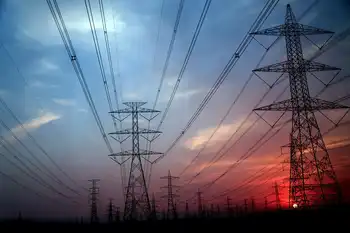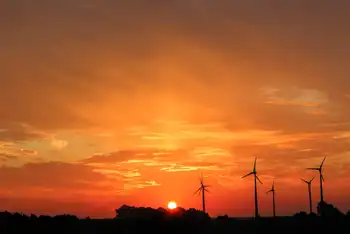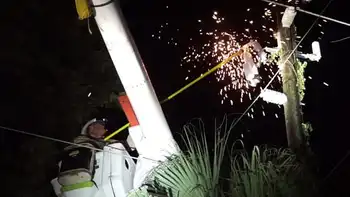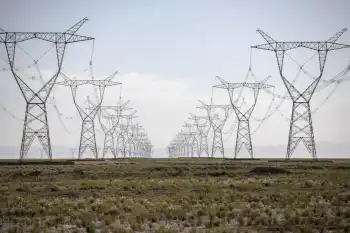Bill would allow Internet over power lines
AUSTIN, TEXAS - High-speed Internet could be wired into Texas homes through utility power lines - meaning more homes would get access to the technology - under a bill pending in the Texas Senate.
But there's a catch: As currently written, the legislation could spread the multimillion-dollar cost to all utility customers - even those who don't need Internet service or want it. The utility would then get to keep 60 percent of any resulting profit - while only 40 percent would be returned to electric customers through a credit on their bills.
Utility representatives say the legislation makes sense, consumer groups say it's a bad deal for customers, and the Republican lawmaker who is carrying the bill said controversial details are likely to change before it becomes law.
"The theory is to try to get broadband to areas that are not currently being served by DSL or cable companies - to get another choice out there," said state Rep. Troy Fraser, R-Horseshoe Bay, about Senate Bill 1748.
Welcome to the complicated world of broadband over power lines, or BPL, which holds the promise of spreading Internet service to the farthest reaches of the state - but which also carries a substantial price tag.
With BPL, special equipment known as nodes would be connected to power lines that run between electric substations and individual homes or businesses. The nodes would inject the Internet signal into the power lines; individuals would receive that signal through modems.
A company called Broadband Horizons has already begun serving about 25 businesses through pilot projects in two small Central Texas towns, Burnett and Weimar. Mike Bates, the company's vice president, says the new technology works - although it's not yet economically feasible to serve isolated homes.
He estimates the cost of equipment upgrades at $300 to $400 per house. Others have put the cost at about $1,000 per home.
"We find this technology conducive to bringing broadband service to (small and medium-sized) communities - the underserved communities - primarily because the line is already there," Bates said. "We've been up and running since last summer [with the pilot projects], and the results have been very good."
On at least one point, consumer and utility groups agree: The reach of the Internet should be extended as far as possible. Tom Morstad, a policy analyst for the Austin office of Consumers Union, likened the goal of "universal" Internet access to the rural electrification projects of the last century.
"The state should certainly continue to explore alternatives for expanding broadband access statewide," Morstad said. "Broadband is to the 21st century what telephone and electric service was to the last century. This is economic development. It's tele-medicine, and it's education."
But where consumer and industry groups part ways is on how Texas should get there - and who should foot the bill. Many detractors believe that the new technology is being oversold and - despite the limited pilot projects - remains largely unproven.
They also complain that under the deal that TXU and some utilities want - the plan as outlined in the initial Fraser bill - power companies could get into this very risky venture at no risk to themselves.
Rather, the utilities could pass on 100 percent of the upgrade costs to their electric customers, and then reap 60 percent of the profits. Electric ratepayers would receive the remaining 40 percent through a credit on their bills.
"That is what offends me the most," said Geoffrey Gay, an attorney who represents Fort Worth in utility matters. "It's not just the silliness of making the electric customer pay the cost - but that [the utility] can make profit off this through some other mechanism, and then tell the ratepayers that they can get credit for just 40 percent. That's really offensive."
But Stephen J. Houle, TXU's vice president for corporate technology, said passing on the cost to electric customers makes sense because BPL potentially improves the overall efficiency of the utility's electric operations.
For instance, broadband over power lines can let utilities remotely monitor their electric substations, it allows them to detect equipment failures and it can provide technicians with real- time data about equipment operations in remote locations, Houle said.
Houle estimated the cost at $300 million to $600 million to make BPL available throughout TXU's North Texas service territory. "Hopefully, after we get this installed and you get just outstanding service... you'll be so happy that you'll think it's a bargain," he said.
He said that under Fraser's bill, utilities could lease out their lines to independent BPL operators - theoretically at little or no cost to ratepayers.
Fraser, chairman of the Senate Business and Commerce Committee, described the legislation as a starting point for discussion. He said that the bill was brought to him by utility representatives and that the final version will incorporate changes to protect consumers.
"The intent is not to spread the cost to everybody over the system -- that is not what we're trying to do," Fraser said. "This is an unproven technology -- there are pilot programs going forward, but we don't know for sure if this technology is going to work."
But he said it's important to consider BPL because of the potential to extend the Internet's reach, and because it could eventually lead to lower Internet prices by bringing more competitors to the market.
"The technology is not there yet, but it could be over the long range that all services for the home -- electric, telecom, cable and high-speed Internet -- possibly could be delivered from the same source and could be monitored from a remote location," Fraser said. "But what we can't do is give the [electric utilities] an unfair competitive edge."
Senate Bill 1748 will probably come up for discussion in Fraser's Business and Commerce committee within a few weeks.
Related News

Ontario energy minister asks for early report exploring a halt to natural gas power generation
TORONTO - Ontario's energy minister says he doesn't think the province needs any more natural gas generation and has asked the electricity system regulator to speed up a report exploring a moratorium.
Todd Smith had previously asked the Independent Electricity System Operator (IESO) to report back by November on the feasibility of a moratorium and a plan to get to zero emissions in the electricity sector.
He has asked them today for an interim report by Oct. 7 so he can make a decision on a moratorium before the IESO secures contracts over the long term for new power generation.
"I've asked the…




